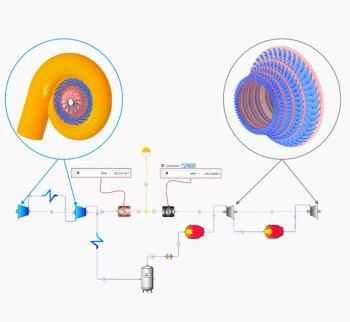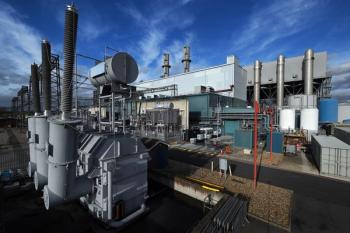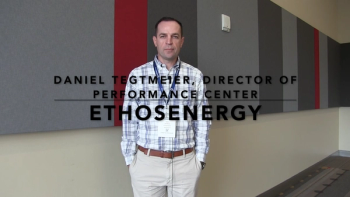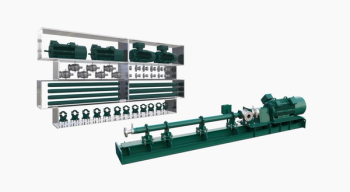
- January/February 2022
SELECTION, PURCHASE,AND OPERATION OF TURBOMACHINERY
Many manufacturers, vendors, engineering firms, and operators have real-ized the importance of lessons learned during different stages of design, devel-opment, and machinery introduction. Too often, those lesson-learned documents have been lists with an overwhelming number of items. Unfortunately, many of the same mistakes are repeated by engineers, vendors, contractors, and operators in subsequent projects. Let’s review a few ways to improve modern turbomachinery.
DESIGN REVIEW
The bulk of the design review is done by design experts and engineers. However, there are two groups of people that should be included in each segment of the design review process: the commissioning/start-up team, and the people who will operators operate and maintain the machinery. In many cases a common shortfall is that companies do not select the operations team at the time of machinery selection. It is wise for operating companies to assign operation leads and superin-tendents as soon as possible and have their inputs on all key matters. A similar principle is applicable for the commissioning team. The exchange of data and information between engineering and commissioning is vital. There should be lines of communication estab-lished to help key people communicate each other and transfer vital data, feedback, and experience.
The following are some examples:
• High-level requirements by client representatives: It is useful if client representatives establish and explain their high-level requirements and expectations to engineering firms and vendors/manufacturers. Of course, some of the expectations might not be achievable and others might not be reasonable considering technical, budget, or time-schedule constraints. However, it is important to discuss these matters as early as possible. It will be found that while some expectations might not be achievable in the way initially thought, alternatives might be formulated which can achieve those expectations at a reasonable cost and without greatly extending delivery times. It is best to not be in a rush to oppose such expec-tations. It is advisable to spend some time and resources to find a way to achieve them in a more suitable way.
• Operator feedback: If there was a problem in operation, the best way (and usually the only way) to inform the engineering team (and subsequently vendors/manufacturers) and rectify the problem is via operator feedback.
• Communication with the commissioning team: The communication between the engineering team (vendors/manufacturers) and commissioning leads is vital. The commis-sioning team need data and documents to plan and prepare for their tasks. Feedback from the commissioning team is also important to consider provisions for smoother and commissioning and start-up practices. Combined with modern monitoring systems, automation provides an opportunity for improved reliability and availability. However, there is such a thing as over-automation.
AUTOMATION
Automation is a major trend in plants and facilities. Automated operation is cost effective, efficient, advantageous, productive, and more easy to manage. Combined with modern monitoring systems, automation provides an opportunity for improved reliability and availability. However, there is such a thing as over-automation.
The basic principle is to leave ordinary, repetitive tasks to control systems and provide operators with tools to do their own tasks better. In an over-automated plant, automation hinders operators from operating efficiently. In some cases, operators cannot intervene and override the automated system when there was a problem.
FAULTY MACHINERY
A general guideline is to buy new turbomachinery rather than second hand. In many cases, it can cost more to rehabilitate and revamp second-hand turbomachinery that to purchase new equipment. There may also be cracks, corrosion, and erosion that has not been detected. Manufacturer warrantee should be mentioned as a key benefit of new equipment.
Whatever equipment is used, shop inspection is crucial yet is often overlooked. It should not be left only to third-party inspectors. Such inspectors are beneficial and are nearly always needed. In fact, third-party inspection is often a mandatory requirement. However, inspectors from the oper-ating company, engineer consultants, the main EPC contractor, and others are often needed to inspect machinery at various stages.
■ Amin Almasi is a Chartered Professional Engineer in Australia and U.K. (M.Sc. and B.Sc. in mechanical engineering). He is a senior consultant specializing in rotating equipment, condition monitoring and reliability
Articles in this issue
almost 4 years ago
The Digital Twin Knows it Allalmost 4 years ago
SENSORS FOR SPEED MEASUREMENTSalmost 4 years ago
MAN ES emphasizes digital tools and decarbonizationalmost 4 years ago
Sulzer Services expands offeringsalmost 4 years ago
Hydrogen Compressionalmost 4 years ago
CHP upgradesalmost 4 years ago
Show Report: TPS 2022Newsletter
Power your knowledge with the latest in turbine technology, engineering advances, and energy solutions—subscribe to Turbomachinery International today.




